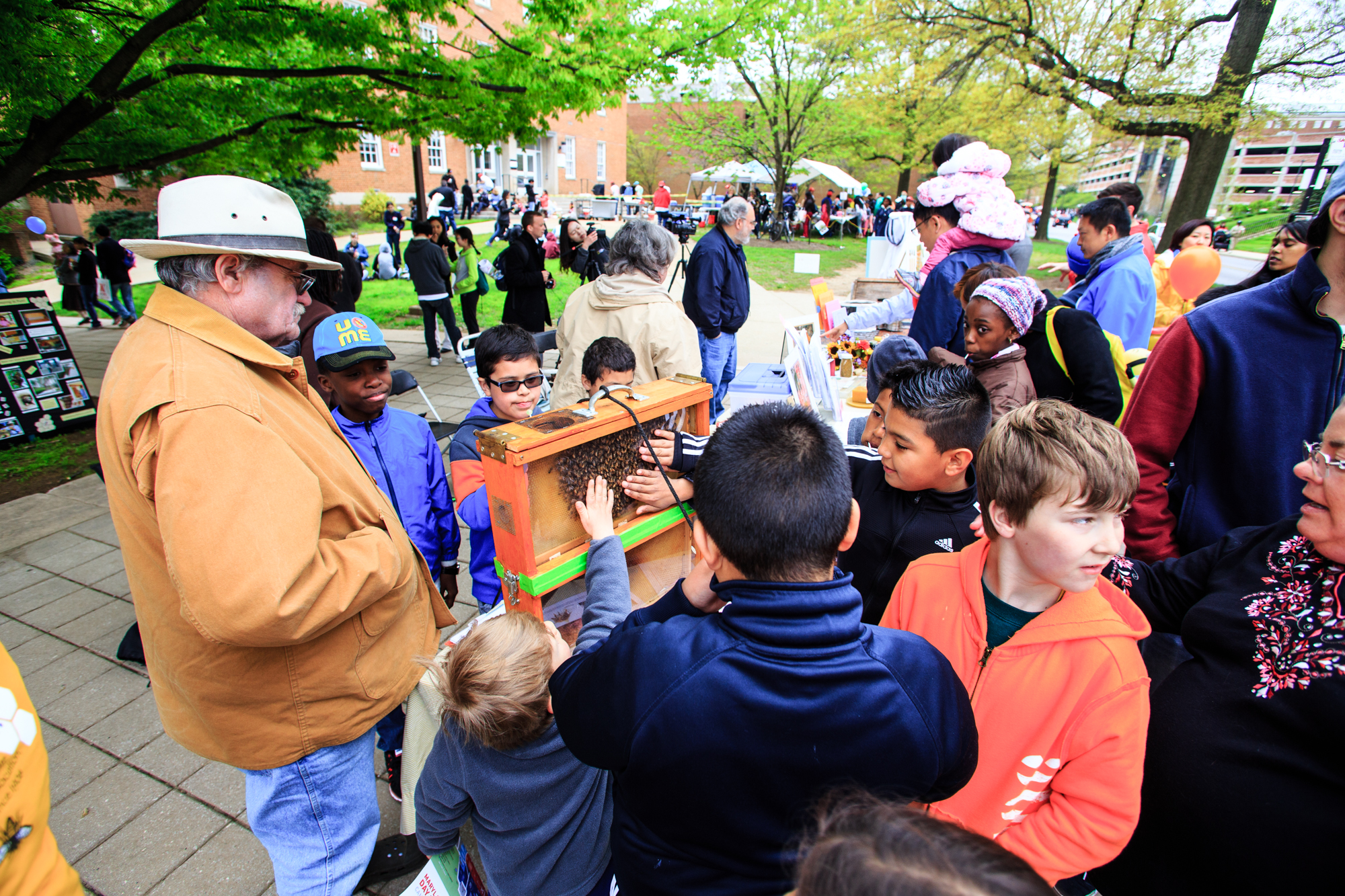A group of University of Maryland freshmen is teaming up to build bee boxes to help preserve the insect’s health and population.
Amanda Hobgood, John Hoerauf, Noah Fogelson and Dan Kossoy started the Bee’s Needs as part of their entrepreneurship and innovation honors program, which required students to enter in the Do Good Challenge. The Do Good Challenge is an annual competition for students to “make the greatest social impact they can for their favorite causes,” according to the challenge’s Facebook page.
All four were interested in sustainability, so they decided to build bee boxes, which serve as artificial hives.
On March 11, the Bee’s Needs teamed up with members of this university’s beekeeping club and a local Boy Scout troop to build 17 bee boxes. Each box can hold 3,000 to 5,000 bees, said Hobgood, an aerospace engineering major.
[Read more: MaryPIRG works to save the bees, find support from UMD students]
They sold all the boxes for $20 each, which is less expensive than the $30 to $70 they typically cost, said Hoerauf, a materials engineering major. They reached out to local beekeeping clubs using email and used Google forms to gather interest. The group delivered the boxes to their customers, who were mostly in Montgomery County, over spring break.
Four bee boxes make up a stack, which replaces a traditional hive and saves beekeepers between $40 and $200 each. Buying supplies and building boxes locally allowed the group to keep costs down and encouraged people to buy them, Hobgood said. The group spent $150 and made $360, generating $210 in profit, she added.
The group plans on making the bee box-building an annual event, Hobgood said.
Education about bees is important, the members said, which is why they also want to create a website explaining bees’ importance to the world.
“A lot of people just don’t know about it,” Hoerauf said. “They might hear that the bee population is declining, but they don’t know why that’s important or even that it’s affecting them at a local level.”
[Read more: SGA becomes BEE Ambassadors to educate about pollinator health]
The bee population has been declining since the ’90s, mainly due to the use of dangerous pesticides, Hoerauf said. According to the British Beekeepers Association, one-third of the world’s food supply is pollinated by bees.
“The more people know about it, the more people will care,” Hoerauf said. “That’s what ultimately allows these changes in society.”
They also want to include information about beekeeping on the website to educate people about keeping bees. Currently, The Bee’s Needs Facebook page has nearly 200 likes, Fogelson said.
“A lot of people don’t know they can keep bees,” Hobgood said, but there does seem to be a market for them.
“The fact that we sold 17 in a week means that there are plenty of people who would buy them,” said Fogelson, a mechanical engineering major. “They just never thought about it before until the offer was presented to them.”
Zoya Samsonov, a sophomore aerospace engineering major and beekeeping club president, said she was glad to learn of another student group dedicated to helping bees.
“We’re trying to get more members all the time,” said Samsonov, noting that current membership is about 10 people. “So it was really good to hear that other people are passionate about it.”
Loren LaVoy, scoutmaster of the Boy Scout troop and a beekeeper for about six years, provided the tools and space for the students and scouts to make the boxes. He said this was a valuable experience.
“The scouts really picked up on the way the college kids were working together,” LaVoy said. “The Bee’s Needs group allowed the scouts to work through problems themselves, rather than just sort of telling them how to do it.”
Hobgood said beekeeping organizations such as the Bowie-Upper Marlboro Beekeepers Association offer beekeeping classes, but there is a “disconnect between [people] completing the course and then actually keeping bees” because of the initial effort and money it takes to make the box.
The Bee’s Needs was a semi-finalist for the Do Good Challenge, but did not advance to the finals. The group will be presenting in the Do Good Challenge Finals Showcase Reception on April 26 from 6 p.m. to 7 p.m.
In the meantime, its main goal is to keep helping the bees.
“If there’s a problem you’re passionate about, usually there’s something you can do about it,” Hobgood said. “Maybe not in the way you originally thought … but there is a way you can help.”



